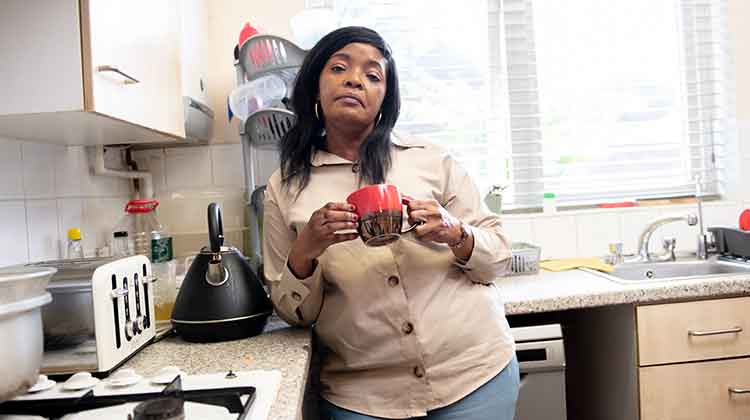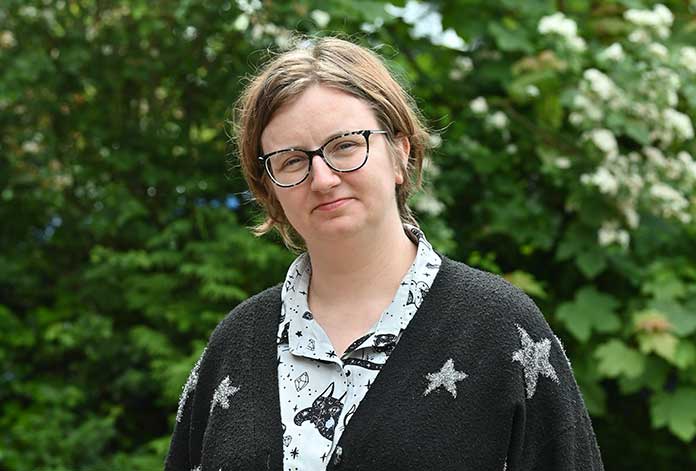Turn2us PIP Helper for MPs

The Personal Independence Payment (PIP) application process is extremely difficult to navigate and users tell us that the assessment criteria doesn’t reflect the experiences of Disabled people with a wide range of conditions.
The Turn2us PIP Helper simplifies the complex application process, making it more accessible and less daunting. It has been entirely co-produced with Disabled people, and health and disability charities to ensure relevance and build trust.
The tool walks claimants through each stage of the PIP application, checks what PIP award is likely and provides personalised tips on how to fill in an application form, making it transparent and manageable.
There are three ways that MPs can help:
- Add the Turn2us PIP Helper to your website and constituency resources.
- Share information about the Turn2us PIP Helper on your website and social media platforms.
- Work with Turn2us to incorporate the voices of people with lived experience into policy -making and drive systemic change across the social security system and beyond.
You can get in touch with us at publicaffairs@turn2us.org.uk or use the button below:
Our policy calls for Government
Include Disabled people in the design of PIP
Disabled people’s insights are essential to making sure that this support meets their needs.
Recognise that disability is complex
The social security system should support those who need it with compassion and trust, addressing challenges rather than punishing people. This means improving assessments and focusing on the social model of disability, recognising the barrier Disabled people face, as well as retaining cash payments to allow Disabled people to live with dignity.
Introduce protected minimum amount of social security
Introduce an Essentials Guarantee, so that the basic rate of social security always covers life’s essentials, and ensure support is never pulled below that level so that PIP is not used to subsidise household budgets. PIP cash payments should help Disabled people with the extra cost of disability as it was designed to do.
Read our policy briefing on Reforming PIP.
Read our full response to the Government’s Consultation on PIP.
Read Alicia’s story
Originally written to feature in The House Magazine

Alicia Cartwright, a Turn2us co-production partner, shares her challenging journey through the UK’s social security system to access Personal Independence Payment (PIP), highlighting the need for a new approach to support all who rely on it.
In the heart of Preston, Alicia faces a tempest many know too well - the social security system. Her journey, marked by a relentless struggle with bipolar disorder, casts a stark light on the overwhelming complexities of applying for PIP: a payment designed to provide financial support for people with extra care or mobility needs due to their disability. As Alicia’s experience illustrates, it’s a system ripe for reform.
“It felt like being lost at sea,” Alicia describes her initial encounters with PIP. “You’re handed a map that leads nowhere, emphasising what you can’t do, drowning in despair and bureaucracy.” This grim battle is not just Alicia’s; it mirrors the experience of thousands disenfranchised by a system meant to support them.
The turning point for Alicia came with Turn2us. We’re a charity dedicated to fighting financial insecurity. As a co-production partner, Alicia influenced the development of the Turn2us PIP Helper, an innovation designed to turn the tide on this daunting process. “With the Turn2us PIP Helper, suddenly there are lighthouses in the dark - guiding, simplifying, and empowering,” she reflects.
But Alicia’s story transcends her personal experience; it is a clarion call for systemic change. “The current system is a relic, punishing those it should protect. We need a revolution, not just tweaks. We need empathy, not barriers,” she asserts.
With the government currently reviewing PIP reforms, Alicia’s insights arrive at a critical juncture. At Turn2us, we serve as strategic allies in this space, providing a tool to guide people through the current system and demonstrating the potential value of building trust and incorporating lived experiences into policy development. Our collaborative approach highlights how firsthand insights can inform and enhance policymaking, suggesting a model that could greatly benefit the system’s reform.
Alicia’s voice is vital in this discourse. “We have the tools and the testimony. Now, we need the will to transform,” she states. Her advocacy goes beyond enhancing a single tool – it’s reimagining the architecture of social security to make it more humane and accessible. Voices like Alicia’s must be at the centre of conversations about system design, ensuring that changes are not just temporary fixes but sustainable improvements that genuinely support those in need.
“For too long, the social security system hasn’t worked for those it is there to support. It’s time to listen to people, like me, with firsthand experience and destigmatise the experience of reaching out for support.”
“Instead of patching up a sinking ship, let’s build a vessel sturdy and fair, with dignity as its compass,” Alicia urges. Lets #GetTheSystemWorking.